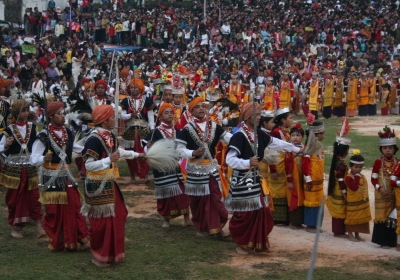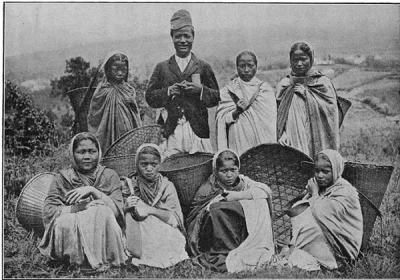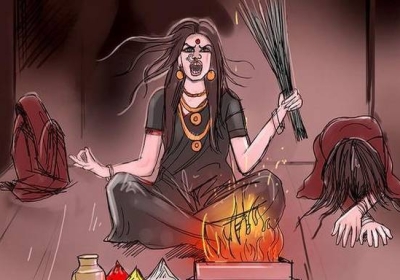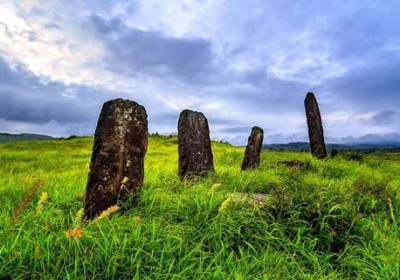KHASI MATRILINEAL CLAN LINEAGE: THE DOMINANT PATRIARCHAL SYSTEM
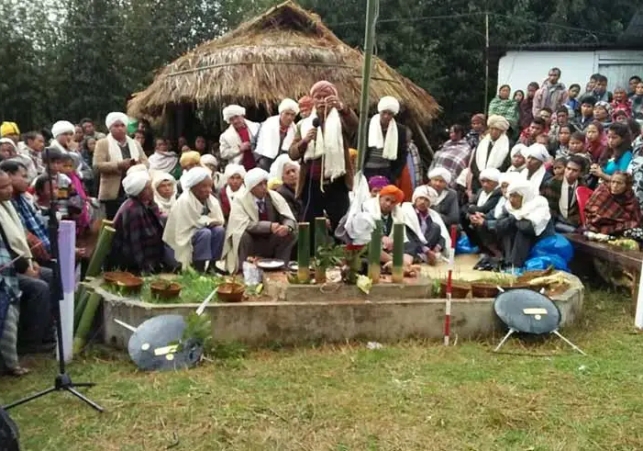
The concern and sympathy of certain section of the society towards the public has facilitated the introduction of alternative social changes and one such attempt is the effort to convert from matrilineal system to the patriarchal system of family lineage. This movement has prevailed in the grassroots and created a tremendous impact on the elite section of society, especially the Anglo Khasi families. Few of the hard-core champions of this cause have set up a social organization, Syngkhong Rympei Thymmai, with the apparent purpose of changing the traditional set up. The organisation was founded on 14 April, 1990 under the leadership of Darning Stone Lyngdoh and Snenglem A Kurbah, even as the former had ideated(??) existed ? since the past few decades. The undercurrent of social upheaval is evident as matrilineal system is ingrained in the mindset of majority of the Khasi people. Moreover, the Syngkhong Rympei Thymmai is confined to the economic issues of inheritance of family properties, without any concrete argument on social, cultural and political consequences. Therefore, the movement does not have a convincing substitute to the prevailing traditional system, and is submerged into the parochial self-defeating endeavour. Furthermore, the movement has instilled diverse and vested opinions to the extent that there is a split among the leadership, and another faction (Skhem Rympei Thymmai) emerged, perhaps due to personal ego, rather than ideology. The founding principle of these organisations is allegedly based on the conventional genetic inheritance through the seed of the male species. It demotes the role of the mother to that of a mere tool of reproduction for every male human. This is the definite socio-cultural trend that prevailed throughout most cultures in the world, especially the Islamic world.
This is a lucid indication of male chauvinism. In almost all the cultures of the world, men asserted authority in every sphere of social, political and economic enterprises. They even tried to dominate the cultural and educational areas, but a certain level of excellence is achieved and retained by women. It all started at home with the father as the head of the family, in any small gathering men always emerge as the person in charge and it created a trend that men asserted leadership in every other activity. Across the globe, men dominated in politics, administration of civil society, education, religion, sports and healthcare institutions. In religion, humans created a system for men to be constantly on top with instances of conviction to divine sanction. The priests, the monks, the pundits, the maulvis, the chaplains, and even God is ascribed as a male entity. In the hierarchy of management and supervision of any of the unit of collective establishment, whether private or public organisations, the customary procedure is always that male members should be assigned to such a privileged position. Perhaps, one of the most pronounced is the Roman Catholic Church, where there is a Pope at the apex authority, then comes the cardinals, then the bishops, then the priests within the congregations, even small matters is entrusted to the deacons; and in public service, the catechists and even altar boys at the Eucharistic mass. In the designated segments of various administrative units, there are papal nuncios, provincials, archbishops, vicar generals, and parish priests. In political governance also, men dominated the status of presidents, prime ministers and union cabinet ministers, senates or members of parliaments, governors, chief ministers and state cabinet ministers, even as women are not barred from occupying any such positions. The voluntary and social organisations are all dominated by men and even female welfare organisations used to employ men in certain vital engagements. Even in the judiciary, the judges or jury panel is always dominated by men. This situation has driven to an extent that there is an adage 'It's a man's world', and there is no denial to the fact that generally men are always entrusted with many works outside the domestic sphere.
In the Khasi matrilineal system also, there is an established system of assigning certain task to male and female members separately. It is commonly stated that the domain of women is in the domestic front, while outside the boundary of the household affairs is usually entrusted to men. This segregation between the internal domestic matters and the external public matters have valid and concrete reasons to authenticate. All female beings are fragile and susceptible to any harm that might be caused by the natural forces and therefore could be detrimental to the reproduction system of every individual; especially during the delicate stage of conception. The domain of women is around the hearth and within the household, while other matters outside the house is the domain of men; and this is the reason for the perception of superiority of men in general. Therefore in Khasi democratic set up, the chieftain and nobles and priests are always men, while the mother and sisters of every social or religious elders are the custodian of family matters and on certain clans they could be the priestess performing rituals and ceremonies. The mother or any matured sister of the reigning chieftain is always taking the role of a priestess and custodian of domestic properties. In the maternal family of the priest clan, the mother or any matured sister in the family shall be assigned with the task of priestess and custodian of domestic properties and held the religious reponsibility around the hearth and within the periphery of the household, while the brothers are resonsible for any other performances outside the house, which could be in the sacred grove, the river, the stone, the tree which are believed to possess spiritual force or embodied particular deities for appeasement through prayers and rituals. The Khasi philosophy perceived the divine nature as neither gender nor digit and is infinite, that is more or less the personification of the divine, whereas God in most cultures and religions is a male gender and only one in number. On the other hand, the Khasi indigenous faith addresses god as either 'U Blei' or a he-god, 'Ka Blei' or a she-god or goddess and 'Ki Blei' or several gods and goddesses. Every good soul is the collectively divine entity that must be cherished and facilitated to prosper and every evil element is the combination within the wholesome segment that must be ignored and allowed to perish. There is a balanced perception of every person in Khasi society and there is a limitless perception of the divine entity in the Khasi faith. In normal circumstances, the individual person is never identified as a particular gender, except in certain specific situations where it is harmful to the fecundity of the female being, particularly pregnant women; or where it is considered socially indecent for the male being. In such cases, regular counselling is being held in the form of narration of folk tales around the hearth and certain moral codes of conduct are being impressed upon in the form of taboo. However, with the onslaught of modern civilisation and rapid advancement of technology, these practices are almost extinct, particularly in the urban conglomerate.


